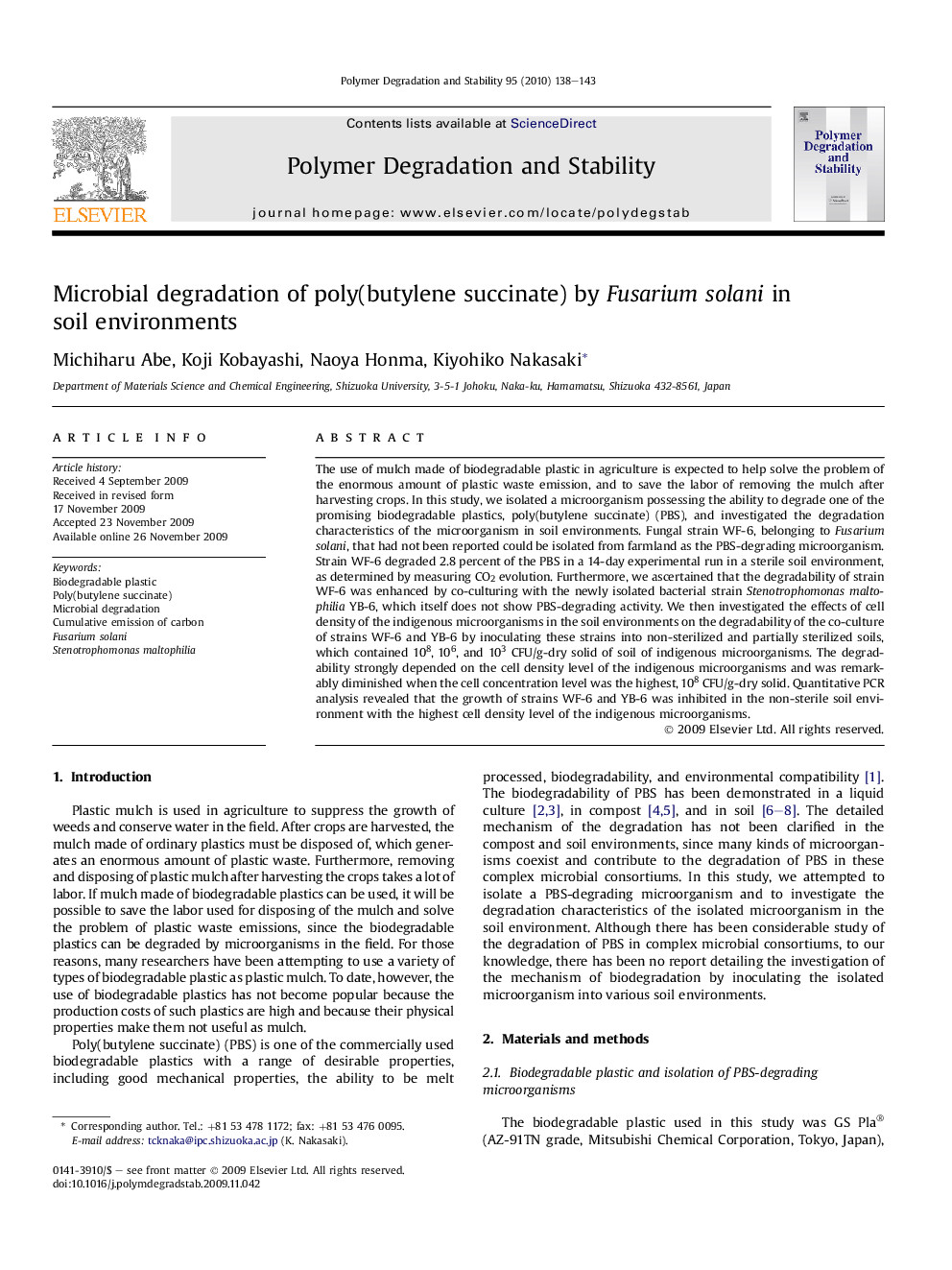| Article ID | Journal | Published Year | Pages | File Type |
|---|---|---|---|---|
| 5203270 | Polymer Degradation and Stability | 2010 | 6 Pages |
Abstract
The use of mulch made of biodegradable plastic in agriculture is expected to help solve the problem of the enormous amount of plastic waste emission, and to save the labor of removing the mulch after harvesting crops. In this study, we isolated a microorganism possessing the ability to degrade one of the promising biodegradable plastics, poly(butylene succinate) (PBS), and investigated the degradation characteristics of the microorganism in soil environments. Fungal strain WF-6, belonging to Fusarium solani, that had not been reported could be isolated from farmland as the PBS-degrading microorganism. Strain WF-6 degraded 2.8 percent of the PBS in a 14-day experimental run in a sterile soil environment, as determined by measuring CO2 evolution. Furthermore, we ascertained that the degradability of strain WF-6 was enhanced by co-culturing with the newly isolated bacterial strain Stenotrophomonas maltophilia YB-6, which itself does not show PBS-degrading activity. We then investigated the effects of cell density of the indigenous microorganisms in the soil environments on the degradability of the co-culture of strains WF-6 and YB-6 by inoculating these strains into non-sterilized and partially sterilized soils, which contained 108, 106, and 103Â CFU/g-dry solid of soil of indigenous microorganisms. The degradability strongly depended on the cell density level of the indigenous microorganisms and was remarkably diminished when the cell concentration level was the highest, 108Â CFU/g-dry solid. Quantitative PCR analysis revealed that the growth of strains WF-6 and YB-6 was inhibited in the non-sterile soil environment with the highest cell density level of the indigenous microorganisms.
Keywords
Related Topics
Physical Sciences and Engineering
Chemistry
Organic Chemistry
Authors
Michiharu Abe, Koji Kobayashi, Naoya Honma, Kiyohiko Nakasaki,
